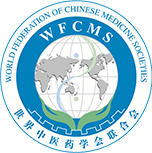Chinese doctors build trust, bring hope in Zanzibar
Release time: Jun 5,2023
Reading volume: 1316
When Chinese doctor Zhao Xiaojun arrived in Zanzibar, Tanzania, with seven of his colleagues in September after a flight of more than 10 hours, the unfamiliarity of his new surroundings was quickly replaced by a sense of feeling at home on the tropical island.
"We were surprised to find many people here can speak a little Chinese, and when we go outside we always meet people who say 'nihao' (hello) to us, even children," he said.
"Locals are very friendly to us, and I remember several times when I got lost in the stone town (the ancient section of Zanzibar) I always received directions from locals who accompanied me back to my house.
"Even our vehicles, with the logo 'China Medical Team', were free from inspection by police when driving on the streets," said Zhao, a surgeon from Taizhou People's Hospital, in Taizhou, Jiangsu province, who heads China's 32nd medical assistance team to Zanzibar, which was dispatched by the Jiangsu Provincial Health Commission.
For Zhao, the friendship shown by locals is a result of the Chinese medical teams' long-term presence in this semi-autonomous province of Tanzania. For decades, the teams have been offering medical services, such as diagnosis and treatment, technical guidance and medical training.
"In total, 32 teams of medical workers from Jiangsu province have worked here over the past 59 years without a single day of absence, not even during the height of the COVID-19 pandemic," he said. "Many of my colleagues who were here previously have treated Zanzibar as their second home."
The latest team, comprising 21 doctors and nurses trained in various disciplines, arrived in Zanzibar for a one-year mission in September. They work with four major public hospitals in the province. Since they arrived, the team has provided 18,500 outpatient services and performed more than 3,300 surgeries, Zhao said.
Villager Fatma Ali Rajabu, who suffers from a herniated disc, said she sought treatment at several hospitals and clinics without success before being transferred to the acupuncture department of Mnazi Mmoja Hospital, a major public hospital in Unguja, Zanzibar, where members of the Chinese medical team work.
"I was so sick that I was confined to bed before coming here," she said. "After acupuncture treatment for two weeks, I felt much better and the pain was relieved."
She receives acupuncture treatment twice a week performed by a local practitioner under the guidance of a Chinese doctor. "We trust Chinese doctors very much, as we know they are sent by the Chinese government," she said.
Wahida Makamed, a nurse who has worked at the hospital for seven years, said acupuncture is very popular with local patients, as it's proved to be an effective treatment for conditions such as joint pain and disc herniation.
The department receives about 45 patients a day. Normally a patient undergoes two procedures lasting 25 days, after which about 60 percent are cured, she said.
Sponsored by the medical team, Makamed went to Beijing University of Chinese Medicine from June to September in 2017 for two months of acupuncture training.
"The Chinese doctors trained us every Friday and Saturday after the clinic closed to patients," she said. "They were very hardworking and they taught us everything. Anytime you needed them, they came without delay."
Liu Yajian, a traditional Chinese medicine doctor from Taizhou Jiangyan TCM Hospital who is a member of the Zanzibar team, said that after being promoted by the Chinese medical teams, acupuncture has been widely accepted by the locals, as it is easy to do and costs less than modern medicine.
Zhao, the leader of the team, said that due to a lack of local doctors and medicines, the Chinese doctors have to overcome many difficulties and adapt to local conditions.
"Back in China as a surgeon I specialized in stomach and intestine cancer, but here I have to do all sorts of surgeries for various physical injuries as well as urology surgeries," he said. "There is also a lack of antibiotics, and sometimes we have to find alternatives to prevent infections during surgery."
The team also works with local health authorities to promote health knowledge and awareness for prevention and early diagnosis of diseases, Zhao said.
In addition to Zanzibar, medical teams sent by China are in operation in 56 countries, including 45 in Africa. Since 1963, when China sent its first medical team to Algeria, the country has sent about 30,000 medical workers to 76 countries and regions, providing 290 million medical diagnoses and treatment services, according the China's National Health Commission.
Dennis Munene, executive director of the China-Africa Center at the Africa Policy Institute, in Nairobi, Kenya, said China's medical assistance over the past six decades has played a significant role in improving people's health and the public health capacity of many African countries, resulting in a large decline in mortality rates.
"Africa, through China's support, has defied the doom and gloom that has characterized its healthcare system as the weakest global link in the fight against communicable and noncommunicable diseases," he said.
"Attaching no conditions, China's bilateral and multilateral healthcare assistance to Africa has been anchored on the principle of equality and mutual benefit."

